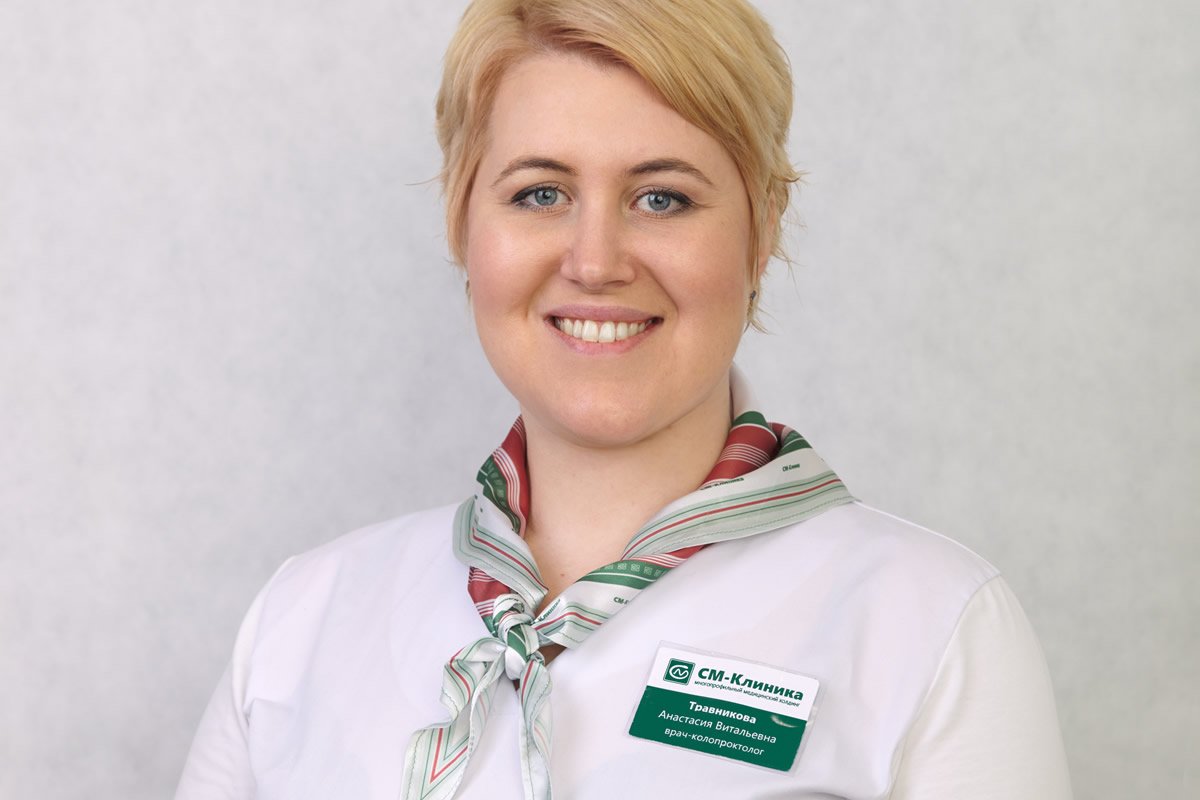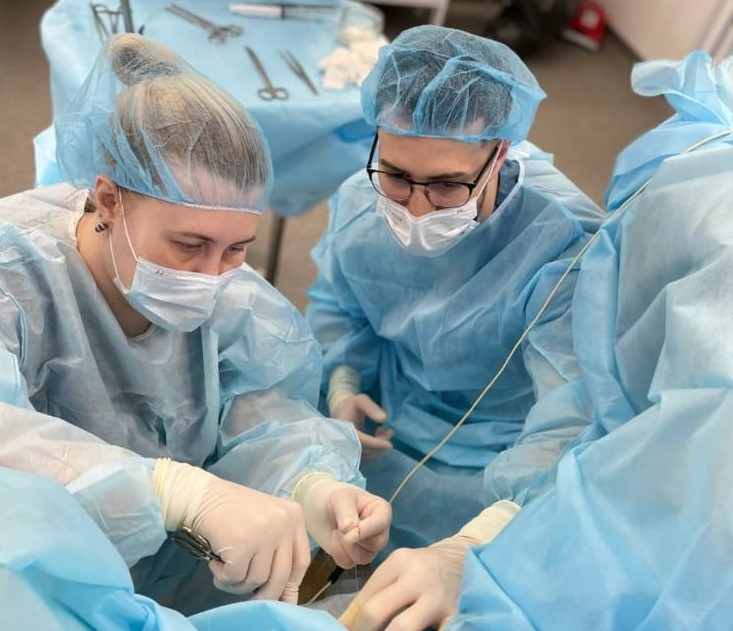
Today, hemorrhoids remain one of the most common diseases, affecting 25 to 40% of the adult population (130-145 cases per 1000 adults) – and the disease occurs equally often in men and women. Coloproctologist, surgeon at SM-Clinic, Ph.D., talks about what causes hemorrhoids and what methods are used to treat them. Anastasia Travnikova.
I believe many of our readers know why this disease develops. But still, let's talk about it.
First of all, I would like to add the following to the figures already mentioned: in approximately 82% of cases, hemorrhoids are an independent disease, and in 18% they are accompanied by other proctological problems, which can lead to consequences more serious than hemorrhoids themselves (for example, the appearance of malignant neoplasms) .
Hemorrhoids – a disease of the veins (venous plexuses) of the rectum or perianal area – can develop for a number of reasons, but in many cases it is impossible to determine why it occurred in a particular person. Let's list the main reasons: tension during bowel movements due to diarrhea or constipation (as well as prolonged sitting on the toilet), pregnancy, excess body weight, regular stress on the abdominal area in the gym or fitness club without the supervision of a trainer. An unbalanced diet (lack of fruits, vegetables, cereals and legumes in the diet also leads to constipation), hereditary factors and others, including a sedentary lifestyle. Moving is very important. The main type of activity for the prevention of hemorrhoids is long-term walking, at least an hour a day.
When exactly should you see a doctor?
Any discomfort in the anal area is a reason for the patient to see a doctor see a proctologist. Of course, patients experience a number of unpleasant feelings: embarrassment, fear, shame, but they must be overcome in order to make a timely diagnosis. One of the most formidable, dangerous symptoms is bleeding.
It can be of varying intensity, from a slight imprint of scarlet blood on toilet paper (at stages I and II of hemorrhoids) to splashing a large amount of blood over the entire surface of the toilet (at stages III and IV of the disease); bleeding is typical specifically for the act of defecation; constant and/or heavy bleeding is observed infrequently; In some patients, blood released from the nodes may from time to time accumulate in the ampulla of the rectum in the form of blood clots, becoming dark cherry in color.
No less common symptoms of the disease are:
- anal itching, pain and burning in the anal area;
- prolapse of hemorrhoids (it is most typical for late (III and IV) stages of the disease and always progresses without treatment); prolapsed nodes cause obvious discomfort to the patient and lead to thrombus formation followed by inflammation;
- hemorrhoids are often accompanied by irritation of the skin in the anus and perineum, and mucous, unpleasant-smelling discharge from the anus. In the acute period, swelling of the perianal area, a feeling of intense pressure and a false urge to empty not only the intestines, but also the bladder often occur. All these symptoms require seeing a doctor.
How does a proctologist conduct an examination?
Friendly, calmly, without unnecessary fuss, using modern high-quality equipment. We try to create absolutely comfortable conditions for the patient.
The average time of conversation and examination takes about 30 minutes.
During the consultation, the doctor conducts a visual external examination of the anus and perianal area, and carefully performs a digital rectal examination of the rectal ampulla. Additionally, it checks the safety of unconditioned reflexes of the perianal area, as well as the presence of cracks, polyps and scars. This is done through a procedure called anoscopy, or examining the anal canal with a rectal speculum.
Sometimes anoscopy and digital examination are not enough, and an extensive examination of the patient is required. In this case, more serious studies are carried out – sigmoidoscopy (visual examination and diagnosis of the condition of the mucous membrane of the lower parts of the rectum), ultrasound of the abdominal organs, gastroduodenoscopy, fecal occult blood test and general blood test; also, as part of the differential diagnosis of other gastrointestinal diseases, colonoscopy is performed to exclude esophageal, gastric, intestinal and intracavitary bleeding.
What treatment is offered to the patient at different stages of the disease?
Depending on the nature of the course and stage of the disease, the reversibility of pathological changes and the severity of symptoms, treatment strategies for hemorrhoids may be different.
1) Conservative: local treatment with ointments and rectal suppositories in combination with tablet medications and a special diet.
2) Combined: conservative therapy in combination with one of the minimally invasive treatment methods.
3) Surgical.
At stages I and II (initial) of the disease, it is often possible to manage exclusively with conservative therapy, sometimes in combination with low-traumatic methods of treatment, that is, without surgery.
If widespread varicose veins are detected, combined with thrombosis and severe inflammatory, destructive changes in the soft tissues of the perianal region and rectum, which is typical for stages III and especially IV of the disease, the patient, as a rule, requires radical surgical methods for the treatment of hemorrhoids.
It is important to know that in the acute form of the disease and exacerbation of the chronic process, patients are prescribed exclusively conservative therapy, which includes the local use of ointments and rectal suppositories, taking tableted anti-inflammatory and painkillers, antibiotics and antiplatelet agents. Physiotherapeutic procedures are contraindicated for such patients.
If we are talking about low-traumatic methods…
Yes, or in other words minimally invasive. These include:
- sclerotherapy (or sclerotherapy) of hemorrhoids. By injecting a special drug (sclerosant) directly into the hemorrhoidal node, doctors achieve a complete and irreversible cessation of blood flow in the node;
- infrared coagulation of hemorrhoids (essentially the same sclerotherapy, only infrared radiation is used instead of a sclerosing agent);< /li>
- ligation of hemorrhoids. By strongly compressing the “vascular pedicle” of the hemorrhoid with a special latex ring, doctors achieve complete cessation of blood flow; some time after the operation, the node gradually dies and is rejected by the body.
All of the above methods are feasible in a day hospital – This allows the patient, among other things, to significantly save his time.
What if it finally comes down to surgery?
This also happens. In clearly advanced cases, the following surgical methods are used: laser vaporization (removal of nodes using a laser), the HAL-RAR technique, which involves ligation of hemorrhoids under ultrasound control (the so-called “desarterization”), or a combination of both methods.

If we talk about open removal of nodes, then this operation is called “hemorrhoidectomy”. It is performed quite often and requires hospitalization in a hospital. And although its effectiveness remains high, it is a painful procedure that requires a long recovery. I am for low-traumatic techniques; my colleagues and I always try to use them if the situation allows.
How long does recovery after surgery last?
The duration of the recovery period depends on the stage of the disease at which treatment began, the patient's sensitivity threshold and the method of treatment chosen. On average, it takes 1.5-2 months until complete healing; the acute period lasts from 7 to 10 days.
What happens if hemorrhoids are not treated?
Without treatment, hemorrhoids progress. The long-term and chronic course of the disease is accompanied by significant changes in a large array of soft tissues, muscles and ligaments of the rectum and perineum, which ultimately leads to the development of severe and life-threatening complications.
Frequently repeated prolapse of hemorrhoids leads to incontinence feces, significantly complicate the hygiene of the perianal area, worsen the quality of life and negatively affect the psychological comfort of the patient.
What can an attempt to self-medicate for hemorrhoids lead to?
I am against self-medication for any disease – including self-medication for hemorrhoids. Firstly, the patient does not know about the possible concomitant pathology, does not understand the essence of the contraindications when using certain ointments and suppositories.
Secondly, can he be sure that he has hemorrhoids, and, for example, not an anal tumor? canal or other disease? How to determine this yourself, at home?
Thirdly, hemorrhoids are different from hemorrhoids. There is an acute and chronic course of the disease, as I have already said, the disease passes from one stage to another, accordingly, the complications are also different. But why lead to complications, try to select expensive drugs on your own, often making mistakes?
I can’t help but ask: do patients today trust a proctologist or are they still afraid to go for an examination?The issue of trusting a doctor is a delicate issue. In my opinion, the most common reason for visiting a doctor is fear. Especially if the patient, having gone to the toilet, discovered bleeding. Unfortunately, it is the appearance of such discharge and severe pain that causes a visit to a proctologist. It is extremely rare to meet a patient who consciously comes for an examination without any complaints – just for diagnosis. But this is as important as visiting a gynecologist or urologist. A special category of patients are women planning pregnancy and childbirth. I would like to recommend that they visit a proctologist before conceiving a baby. In general, the thought of visiting a proctologist should not cause fear and shame, and the visit itself should leave a feeling of security and confidence in one’s health.
(Interviewed by Maxim Petrov)There are contraindications . Specialist consultation is required.
Advertising. LLC “Derais”
TIN 7710421359
Erid: 2SDnjcPvYmf
Important! Information is provided for reference purposes. Ask a specialist about contraindications and side effects and under no circumstances self-medicate. At the first signs of illness, consult a doctor.
